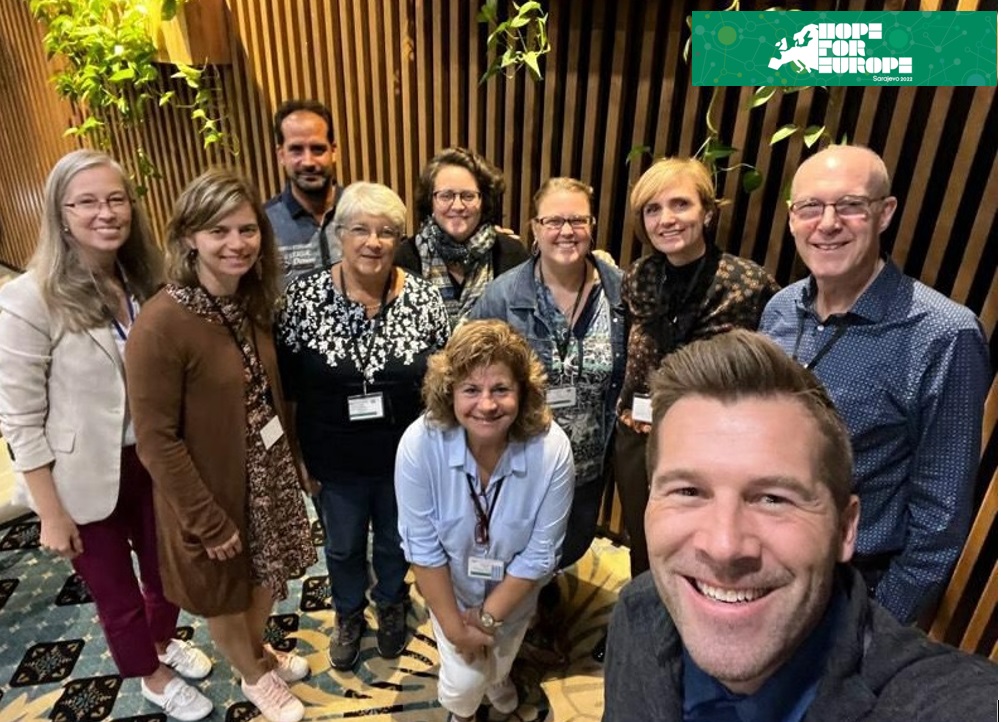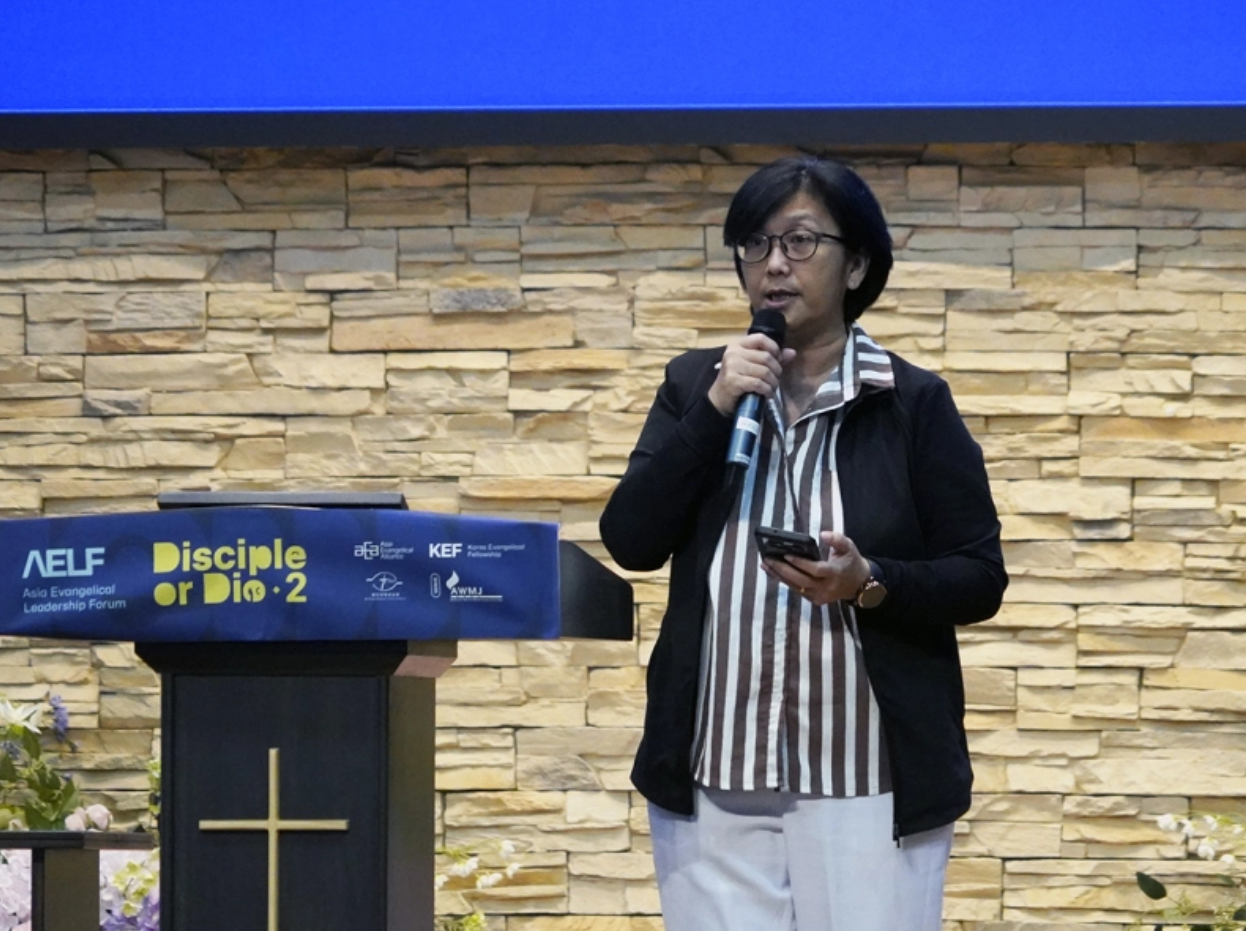From October 4-8, 2022, I participated in the Hope for Europe 2022 event in Sarajevo, Bosnia. Organized by the European Evangelical Alliance and focusing on the EEA’s 17 thematic networks, it drew together some 280 evangelical leaders from across the continent under the theme “Builders connecting – celebrating the Kingdom of God.”
On the first day, I joined the Reaching Europe’s Children (REC) Network Community group where various leaders from different children’s ministries in Europe met for a time of introductions. REC Coordinator Harry Bryans led us through the session and suggested that we all spread out to different tracks and workshops, so we could gain the most from the event, and then report back and share with others what we learned and how we could apply these insights to our work with children.
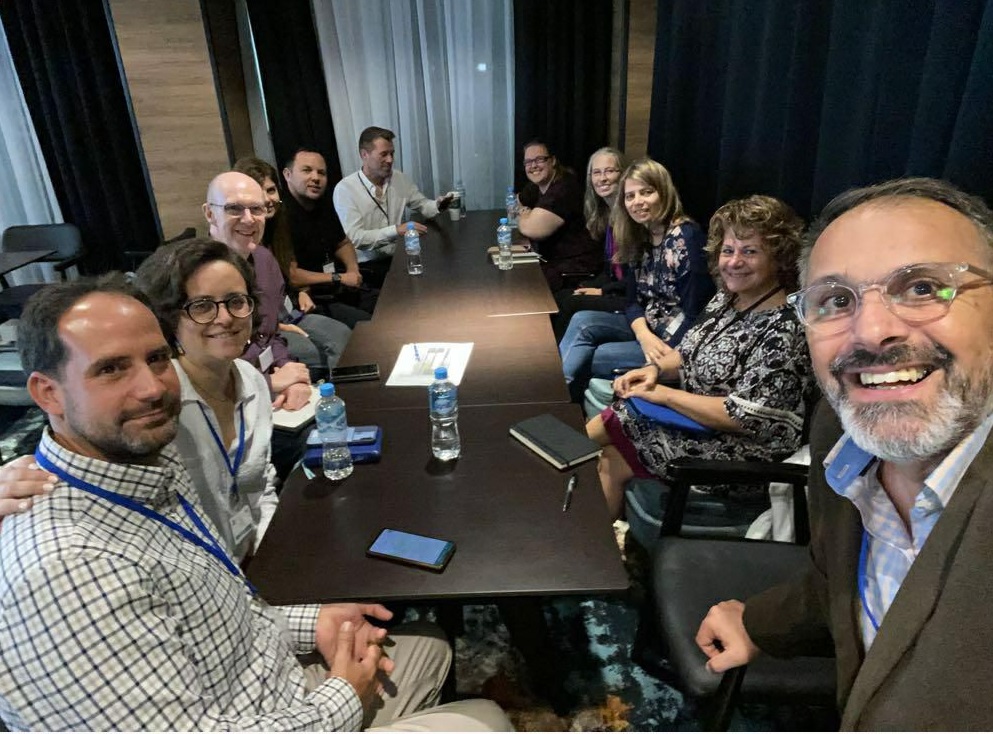
Some of the sessions I joined were eye-opening for me, so here are a few insights with links to the respective whitepapers with more information.
European Freedom Network – Human trafficking and children at risk
There are many social groups that can be labeled as vulnerable. Among them are children as they fully depend on adults – most commonly their parents or caregivers within a family that form the basic environment where a child grows up in and is being shaped. But what if their family fails to be a secure place where the child can live out its full potential?
The discussion was focused on the issue of family breakdowns where violence, alcohol, drugs or poverty are the most common triggers. Such a breakdown often leads to the lack of education of children, which later results in a lack of job opportunities and conclusively places the child into a vulnerable situation where they become easy prey for exploitation and organized crime.
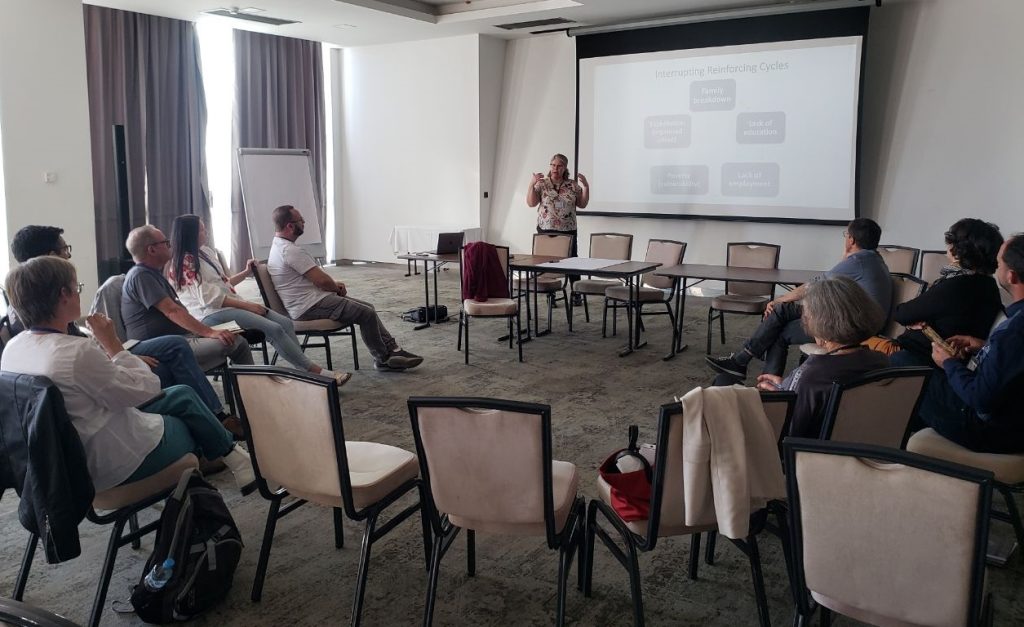
The question is, how can churches help break this cycle? As the negative cycle starts in the family, it is the church that may be able intervene early on and help with the children. Examples could be church members providing an afterschool program or activities with children, helping them with their studies or homework, serving as a job advisor, educating them regarding financial literacy, and more. These are very practical ways how churches can help come alongside vulnerable families and help them and their children build a future.
For more information about the European Freedom Network, click here.
Roma Network – Serving Europe’s Roma Communities
There are an estimated 10-12 million Roma in Europe, which makes them the largest ethnic minority on the continent. However, there is a lot of stigma surrounding them and reaching them with the gospel requires an intentional approach.
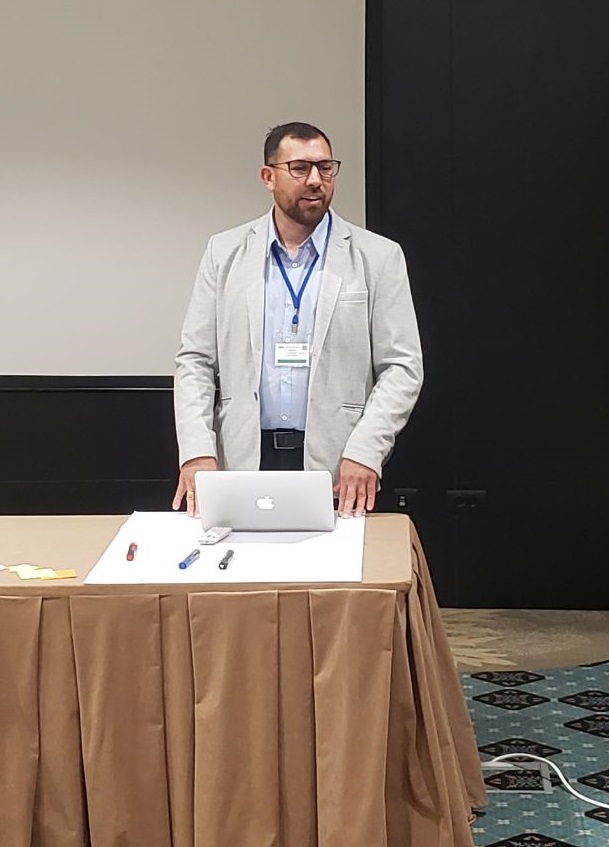
The session offered insights into the ways that the EEA’s Roma Network serves this community. It focused on identifying and discipling present and future Roma leaders – especially investing in mentoring young leaders and Roma women; holistic education for healthy Roma families & communities bridge-building between Roma and non-Roma – including offering training to non-Roma churches and introduce Roma mission to non-Roma leaders, ministries and churches; and finally the development of a work ethic among Roma by developing Christian business and social work, and encourage micro-business for churches to become self-sustainable.
To learn more about the Roma Network, read their Whitepaper here.
Miki Kamberovic / Roma Network Pitch at Hope 2022.
Evangelism in a New Age
Another session was focusing on the new age we live in and how to reach today’s generation with the gospel. It starts by understanding the belief system in contemporary Europe, especially the two major social shifts from the modern to the post modern era.
In the modern era, the invention of the printing made reading books accessible to everyone. However, the publishing of books was only possible for an elite group. In the post-modern era – the age of digital technology – everyone can become a publisher of information. The issue now is that there is too much information and too many people speaking, which also contributes to manipulation of information and data, fake images and news and poses the question: what can we trust? The focus is on my personal story, my experience, my life, my truth, and “experts” are increasingly mistrusted.
Descartes coined the famous phrase “cogito ergo sum” – I think therefore I am. In the post-modern era, it changed to TESCO ergo sum – I shop therefore I am. Consumption becomes a lifestyle and music, clothes, vacation destination, etc. come to define the identity.
While the modern era was defined by science, the post-modern era is defined by experience and the expression that “this may be true for you, but it’s not true for me.” Younger people are open for spirituality and want to experience it themselves. So for them, personal testimonies are becoming more important where people would share their experience how Jesus Christ changed their lives.
To learn more about the work of the Evangelism in a New Era Network, read their Whitepaper here.
Concluding thoughts: there is Hope for Europe!
The event was a great opportunity to connect and gain new insights on issues that I wasn’t aware of before or to deepen my understanding of some issues. What was encouraging for me is that the presenters and workshops did not just focus on describing the problem, they also shared how churches are responding effectively and what we can learn from these best practices. So even though there are great challenges on this continent, the title of the event is what I took away from it: there still is Hope for Europe!

